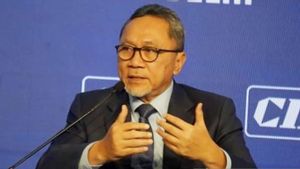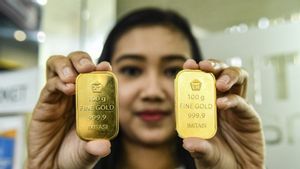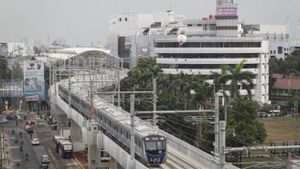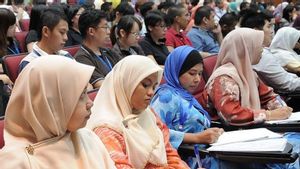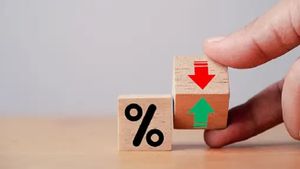JAKARTA - The Ministry of Energy and Mineral Resources (ESDM) through the Directorate General of New Renewable Energy and Energy Conservation, optimizes renewable energy resources that are widely spread across various regions through the super grid network and the Renewable Energy Based Industrial Development (REBID) program.
"Given the uniqueness of Indonesia as an archipelagic country and to optimize the widespread renewable energy resources, the Government plans to implement a modern and integrated super network and the REBID program," said Director General of New, Renewable Energy and Energy Conservation, Dadan Kusdiana, quoted on Saturday, May 13.
According to Dadan, this strategic effort was carried out as a step to accelerate the development of new and renewable energy (EBT) in order to achieve the target of 23 percent of EBT in the national energy mix in 2025 and reduce greenhouse gas (GHG) emissions, as well as the target for net zero emissions by 2060.
"We have several targets, which will be realized through optimizing the use of EBT for supply side and demand side through electrification and energy efficiency. Indonesia has abundant, diverse and widespread renewable energy resources. So far, the use is only 12.6 GW while the potential is more than 3,600 GW," said Dadan.
Dadan further explained that the super grid program is aimed at improving renewable energy development, maintaining transmission stability and security, overcoming discrepancies between renewable energy sources and high electric energy demand locations, and providing and expanding energy access.
Meanwhile, REBID is an effort to accelerate the use of renewable energy on a large scale in areas that have abundant renewable energy sources and low energy burdens. The program is carried out through "creating demand" to integrate regional and industrial development, attract investment and improve regional economic development.
"The program is in the form of an integrated development of large-scale hydro and geothermal power plants with industrial development and synergy in the development of EBT with the development of economic clusters," said Dadan.
اقرأ أيضا:
This concept, he continued, will be used for the first time for the development of the Green Industry Park in North Kalimantan. This abundant area with water energy sources is the location of the Tanah Kuning Industrial Estate which will host several new green industries, such as renewable fuel, green hydrogen, new energy batteries, Katoda Ternary, and green aluminum.
"If the REBID Program is implemented, the amount of investment needed for interconnection can be reduced. And what we need to emphasize is that the clean energy transition in developing countries will not only benefit the environment but also create jobs, stimulate economic growth and contribute to poverty alleviation," concluded Dadan.
The English, Chinese, Japanese, Arabic, and French versions are automatically generated by the AI. So there may still be inaccuracies in translating, please always see Indonesian as our main language. (system supported by DigitalSiber.id)




